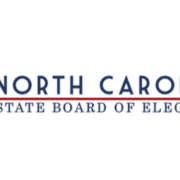State Board Of Elections Registration Repair Project Underway To Update Voter Info
The first wave of mailings is now going out to North Carolina voters who need to provide their driver’s license number or the last four digits of their Social Security number as part of the State Board of Elections “Registration Repair Project.”
The SSBE is sending letters to about 82,700 individuals whose voter registration records lack one of these numbers, as required by state and federal laws.
According to the SBE database, which is updated daily, Vance County has 451 voters who need to provide the additional information to keep their voter registration current. Granville County has 384, Warren County has 133 and Franklin County has 649.
Individuals who receive the letter requesting the additional information can provide their driver license number or the last four digits of their Social Security number either by completing and returning the form at the bottom of the letter and returning it in the mail, in person at their local Board of Elections office or online through the NCDMV secure website at to payments.ncdot.gov.
There is no cost to make the registration update using the NCDMV website.
Updating the voter registration may not be done by phone.
“It’s quick. It’s easy. It’s free,” said Sam Hayes, State Board executive director. “We strongly encourage all voters on the Registration Repair list to take action now and avoid any issues the next time they show up to vote.”
North Carolinians can search whether they are on the list via the Registration Repair Search Tool, which is updated daily.
The Registration Repair Project launched on July 17, and already, the registrations of more than 20,000 voters have been fixed through a combination of research by the county boards of elections and the response of individual voters to update their registration records. As of Monday, Aug. 18, 82,540 registrants remained on the repair list, down 20 percent from 103,270 on the original list.
In future elections, in-person voters who still have not provided the required information to update their registration must vote provisional ballots and provide the information when they vote. That process is easy — the application for voting a provisional ballot includes prompts for DL# or SSN4.
The State Board is creating a flag to appear on these voters’ records in the electronic or paper poll books used at voting sites to alert poll workers that these voters must vote provisional ballots and provide the missing information for their ballot to count. Once a voter provides their DL# or SSN4 and that number is validated, the provisional ballot will count. County boards of elections will train poll workers accordingly.
For more information, go to ncsbe.gov/registrationrepair.

